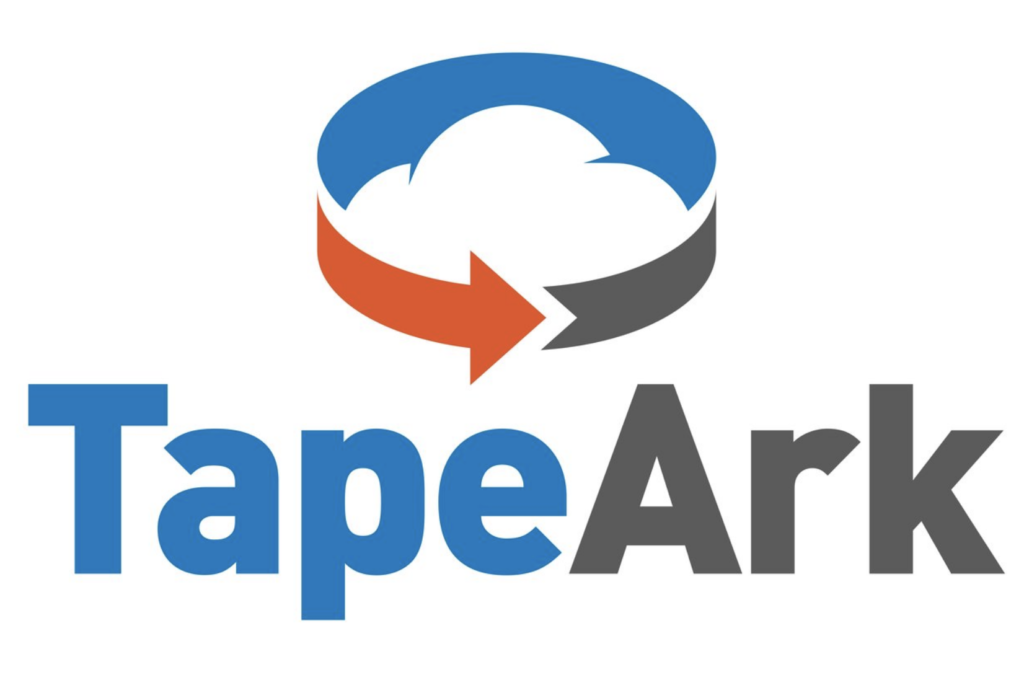
Doing Data Justice: Tape Ark Helps M&E Companies Liberate Tape Media Content
For the media and entertainment community, global tape and data migration experts Tape Ark has a singular focus from the outset: to efficiently migrate content from tape to the cloud and enable customers to harness more value from their content.
MESA sat down with Kyle Evans, chief commercial officer with Tape Ark, about the challenges the industry faces preserving video content trapped on decaying tape media, how moving content on legacy formats to the cloud enables a new world of data-enabled opportunities, and what’s on the horizon for the company.
Seagate Powered by Tape Ark is a partnership that operates in North America and Europe. Tape Ark brings their ground breaking technology stack for tape to cloud mass-migration, and Seagate Lyve provides 40 years of data storage and management expertise.
MESA: How did Tape Ark first come on the scene, what was the impetus for the company?
Evans: The whole concept around Tape Ark spawned around the traditional tape-transcription business: copying tape, duplicating tape, going from an old format to a new one. Several years ago, we noticed a significant market shift as the cost of cloud storage was materially decreasing. It made a lot of sense for our customers to take their content and migrate it to the cloud however when it came to execution, there was no efficient way to mass migrate these large collections of backup tape as traditional tape libraries were not built to handle large migration projects.
When you take these extensive collections of tape, holding petabytes of valuable content, you need to look at how to scale, and the technology at the time just didn’t exist.
Tape Ark was initially launched to address this issue: it moves valuable content safely to the cloud, rapidly, efficiently and at scale. Today, though, the problem is more than lifting and shifting data. Industries like the media and entertainment, news, and sports broadcasters can do a lot more with their content thanks to the technological advances in cloud computing. In the cloud, content is highly accessible, discoverable, and searchable – no matter where you are. Data now has more utility as it can be harnessed with current and future cloud-enabled tools.
The argument has now shifted from ‘should we migrate to the cloud?’ to ‘what opportunities are we missing if we don’t migrate our assets to the cloud?’
MESA: What have been some of the biggest challenges Tape Ark has encountered when it comes to transferring legacy tape-based data to the cloud?
 Evans: There are a couple of challenges any organization faces when migrating tape-bound content to the cloud at scale.
Evans: There are a couple of challenges any organization faces when migrating tape-bound content to the cloud at scale.
Firstly, all industries face having wide variations of tape types in their media collections. Tape Ark has an extensive history of working with all different media types and the brands that created those media. We’ve built a rich catalog of profiles on how best to handle the variety of media. We work to achieve a 0% data loss when we restore content from tape. When it comes to addressing tape variations in customer collections, we know exactly what to expect from the format type and the particular manufacturer during that period of the tape’s life cycle.
The second is the perception of the logistical challenge. Our customers who’ve been storing their tapes in an off-site facility for 5, 10, 15+ years often see the task as being time-intensive: getting data out of the facility and then accurately understanding what you have stored.
When we work with our customers, it’s reconciling what they think they have been storing and what they actually have. It is a cost-effective approach, we’ve designed a system to audit and process at scale, applying some of today’s cutting edge cloud technology for speed and accuracy. For our customers, because we manage the end-to-end process, it is not a time-intensive project from their part. After the tape audit, customers are better positioned to make an informed decision about their collection as they know exactly how much data is stored on the tapes, what tapes are at risk of data loss, their total cloud footprint and appropriate storage tiers.
MESA: What are the advantages Tape Ark’s customers have realized?
Evans: One of the most significant advantages our customers realize is data redundancy. Cloud storage provides significantly increased data redundancy over offsite tape storage so the chances of losing data are reduced significantly. As they’re able to access their content, and with COVID-19, that’s now become more relevant than ever. Instead of the time-intensive old way of requesting a tape from a physical warehouse, the transcription process to restore the data – if the format is no longer current, taking days and at times weeks along with additional costs incurred – now companies can simply access the data via their cloud account in real-time.
It works particularly well with a distributed and remote workforce. And I suppose the sizzle that motivates customers is that they can value-add to their content once it’s in the cloud, now and in the future.
Tape migration is one of those ingredient services that may not be glamorous, but when you look at the outcome, it gets exciting. We’ve got customers who all of a sudden can enrich their collections internally and offer audience experiences in more-defined and relevant ways. For example, tagging content using today’s machine learning tools, celebrity and image identification, better discoverability for specific scenes, locations, and text-to-speech transcriptions, enriching content in ways that can’t be done if trapped on tape. The cloud opens up a world of opportunities.
MESA: AWS, Google Cloud, Azure …. some of the biggest cloud platforms in the market partner with Tape Ark. How crucial are these partnerships, and how do they come into play?
 Evans: We have made strategic decisions to work with these leading global companies, knowing that to enrich our customers and grow our business, we needed to have partnerships with the right organizations that are equally focused on helping customers achieve their aspirations.
Evans: We have made strategic decisions to work with these leading global companies, knowing that to enrich our customers and grow our business, we needed to have partnerships with the right organizations that are equally focused on helping customers achieve their aspirations.
AWS, Azure, Google Cloud, and our other partners have also been very supportive and essential to our business, helping to show our customers what the cloud can offer in terms of accelerating their migration and transforming their data. I liken it to this, if you buy something online, the decision to purchase can take a long time. But once you make that purchase, you’re tracking the parcel, and looking forward to the delivery. What we’ve found is with our cloud provider partners, their customers go through a very long process deciding the optimal cloud strategy.
Once they decide, they quickly want to deploy all of their workflows in the cloud, and that’s completely reliant on having their content there. Being able to pick up 10, 20, even 50 petabytes of content, and shift it very quickly to their cloud storage platform, is one of the many vital services offered by Tape Ark.
MESA: Who else is realizing the benefits of Tape Ark’s work in the media and entertainment space today?
Evans: We work with a broad range of content producers, broadcasters and movie studios and all of the projects revolve around the same benefit we provided the Rock & Roll Hall of Fame. Restoring trapped content from tape-bound media to the cloud so that customers can transcode and reposition the data for platform distribution. Today that has become more important than ever for production studios and broadcasters.
MESA: What’s next for Tape Ark, what improvements or advances might we see?
Evans: Tape Ark continues to work within the broadcast, media, and entertainment community. We service a wide range of industries looking to make more of their legacy data through today’s technologies. We’re continually working to improve our ability to move content on legacy tapes to the cloud efficiently.
When our customers first look at a tape-to-cloud migration, it can be challenging to know where to start. They struggle to understand the volume of data to migrate, and the upfront and ongoing investment into managing the data in the cloud. We’ve addressed those struggles and created a completely offline process, pre-migration, and an in-depth audit that analyzes every individual tape. This analysis, of what’s stored on every tape, before cloud migration, gives customers confidence knowing how best to triage their content, and make informed decisions. That’s absolutely significant in terms of budgeting purposes.
As a company, we pride ourselves as being the mavericks, this means upending the physical data storage industry and not settling for the status quo. At Tape Ark we are continually looking at ways to do things differently that has a material impact to our customers – we are customer-obsessed, from the way we think about the customer and their data, the industry challenges, right through to every step of the tape migration process – for us, it’s about doing data justice.
